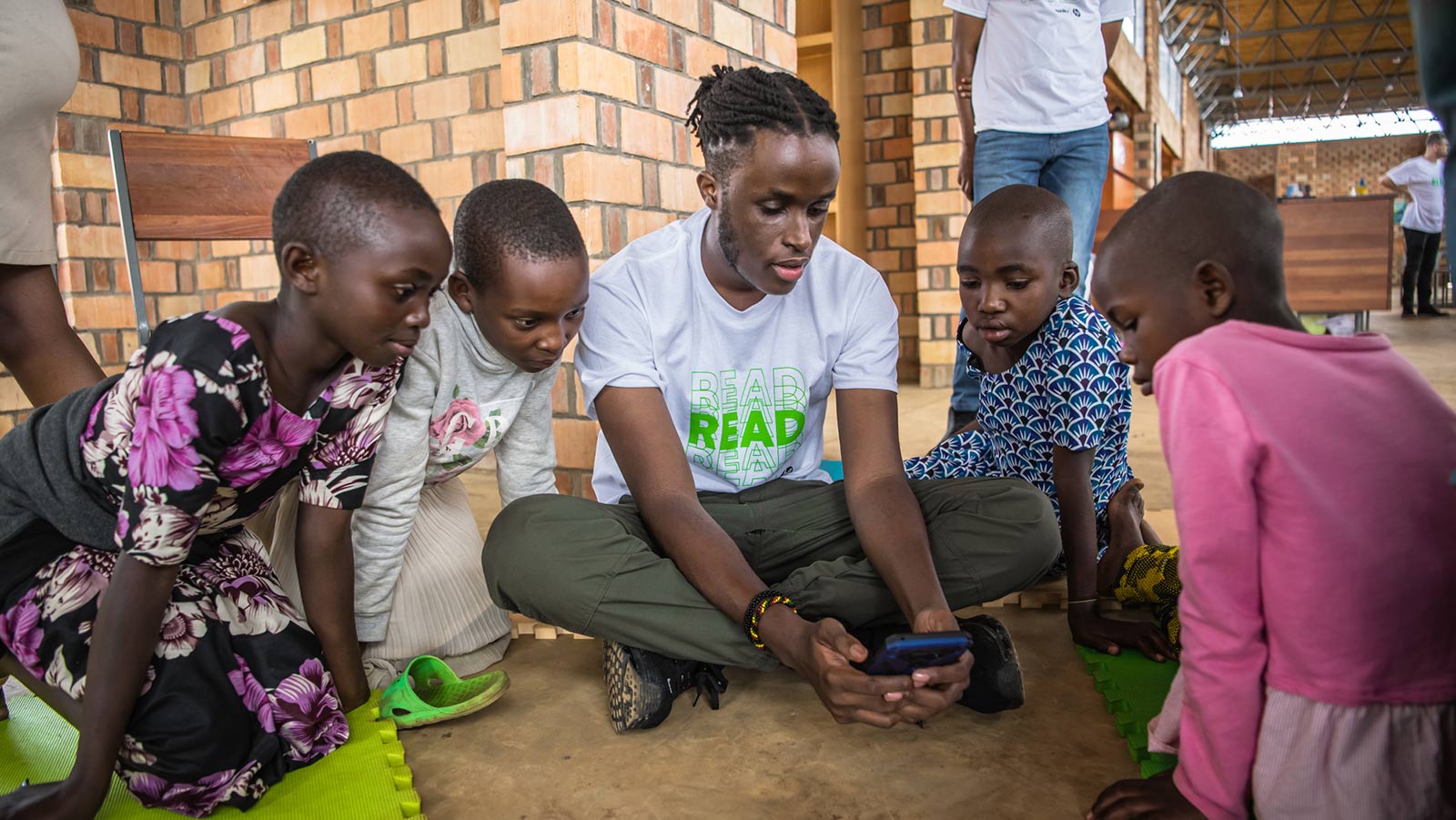
- Home
- About Us
- Sustainability
- Investors
- News
- People & Culture
-
Regions

As part of MTN’s broader commitment to social responsibility and environmental sustainability, Project Infinity reflects a practical application of circular economy principles. One of the pilot initiatives under this programme focused on improving educational access and literacy in Rwanda, while promoting device reuse to reduce waste and avoid emissions.
The literacy pilot programme illustrates how technology and collaboration can be leveraged to address systemic challenges like illiteracy. MTN South Africa contributed 894 unused smartphones to the initiative, repurposed through circularity partner GSM Systems. In partnership with Nabu, the Ministry of Education in Rwanda, and local implementation partners, these devices were delivered to 76 schools across seven districts.
Each device was pre-installed with the Nabu reading app — a free digital platform designed to build foundational literacy for children aged 5 to 15. The app features a library of culturally relevant stories in local languages and supports a gradual transition to English as learners progress, expanding their access to broader educational content. This approach promotes early reading engagement while opening pathways to further learning.
To ensure effective use, 641 teachers received training on how to incorporate the devices and app into their classrooms. Over a five-month period, the programme recorded a 276% increase in reading time and a 13% increase in book completion rates, demonstrating improved learner engagement and content retention.
Beyond educational outcomes, the initiative also reflects MTN’s commitment to responsible consumption and circular economy practices. By redistributing idle devices, the programme avoided the need for new device production, contributing to emissions avoidance of 51 tCO₂e. This is equivalent to:
The Rwanda pilot programme has shown promising results, and we are excited about potential partnership opportunities for expansion. MTN is exploring opportunities to expand the initiative through new partnerships, with growing interest from corporates, NGOs, and educational stakeholders.
We welcome collaboration to scale this model to additional communities. By working together, we can help close educational gaps, extend the life of existing technology, and support emission reductions in line with MTN’s broader Net Zero ambition.